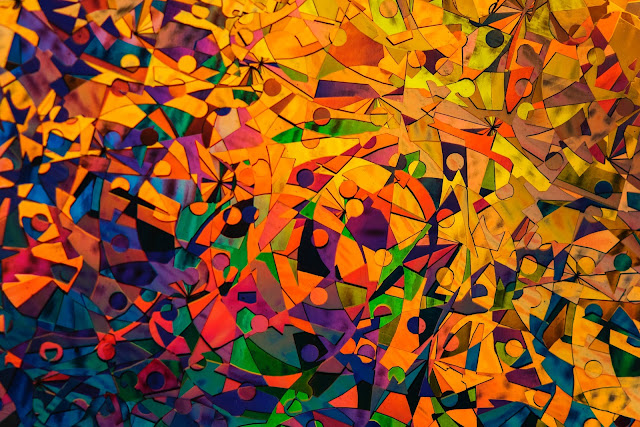CULTURE & TRIBALISM
"A nation's culture resides in the hearts and souls of its people." - Mahatma Ghandi
The topic of culture has been the cause for historical controversies for centuries. It also has been the "glue" for many that have brought people together on one accord. According to the Oxford Dictionary, culture is defined as:
"the customs and beliefs, art, way of life, and social organization of a particular country or group European/Islamic/African American, etc."
The importance of culture is fundamental to the very fabric of humanity's social sense of belonging. It is a unifier that gives a form of unique order and tradition that carries across the centuries in a headwind of moral values, philosophical idealisms, technological advancements, and even medical remedies. The numerous cultures, given the diversity of ethnic groups in the world, have been an orchestration of a "sense of belonging" and relatability. These concepts range very far back in humanity's history and have been the turning points that drive the reason and motive behind why different groups made certain decisions. Such decisions were the culprits of the need for group self-preservation.
The late Jamaican Pan-Africanism leader, author, publisher, speaker, and multi-gifted Marcus Garvey once said:
"A people without the knowledge of its past history, origin, and culture is like a tree without roots."
As he alludes to in his quote, the importance of groups of people knowing their past history and the relevance of the culture that resides within their DNA is fundamental to true growth. That knowledge can help to center a people on a common reference point when times of confusion become prevalent in "melting pot" societies that swirl human philosophies around in the churning concrete of its structural foundation.
The dating back of culture is noted even in older texts such as the Old Testament of the Bible, which analyzes and details the story of a specific people (Israelites) throughout the centuries of history; past, present, and even future. It sheds some insight into how this nomadic people's culture was steeped in agriculture and beloved tradition that played an instrumental role in their way of life. It also displays how their culture determined a form of outlook and perspective within the individuals themselves that translated into daily life. This correlates directly to any culture in which its people are loyal and live by the traditions and beliefs of said culture. This form of unifying guidance can be very beneficial to one’s life if positively orchestrated, but can also be the cause of harsh forms of tribalism if not self-regulated.
There have been numerous instances and examples all throughout history where people have assumed that their specific culture should be "the golden standard", which all other cultures should follow. This has often resulted in extreme cases such as wars and other hideous measures which further strike a harsh blow of separation instead of unification. This behavior has developed into an interpersonal schism sometimes subconsciously, due to years of differing cultures shunning each other because of hierarchical beliefs. In this case, the mentality of tribalism from older times has weaved its way into the current periods, resulting in division and even more extreme cases such as bigotry and other evils. The idealism that one's group/community is the only "tribe" of the utmost importance has clouded the minds of many, forcing abrasive attitudes towards others who are "outside of the tribe".
My opinion rests upon the knowledge that human nature most times in a natural sense often turns towards the desire to be recognized as being elevated in status amongst its peers. Power complexes and hierarchical tribal mentalities persist despite efforts against them. You see, it's an internal issue of the heart/mind--it's not something that can be solved through law or externally.
The personal choice to remain united in the unique wholesome qualities that culture offers while shunning the harmful side-effects of tribalism endears us to each other as people, and overrides the power complexes we have put in place for centuries. Learning that the value each of us offers is priceless, precious, and incomparable to any "power" or "monetary compensation" is another key to realizing how to "love your neighbor as you love yourself".
Takeaway: Do not become so inundated with the idealisms and philosophies of culture that you forget the value and love for your fellow humans in the process, resulting in the jaded paradigms that tribalism produces.
I pray this post inspires, encourages, and can add a little bit of positivity to your day! Have a good one!
More Links Below:
-YouTube Visual Poetry Videos: Click Here!
-Book: The Unsolvable Intrigue: An Anthology of Poetry and Short Stories
-Clothing Line: dcstoy2u-SHOP
-Instagram: @d.c.stoy



Comments
Post a Comment